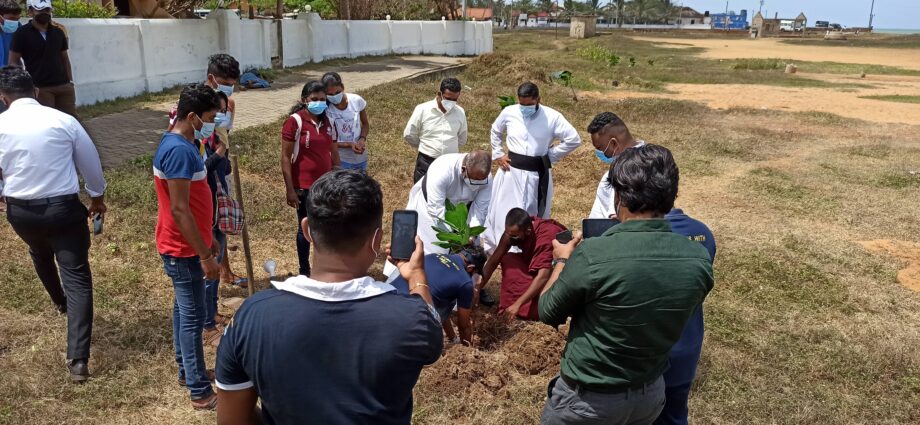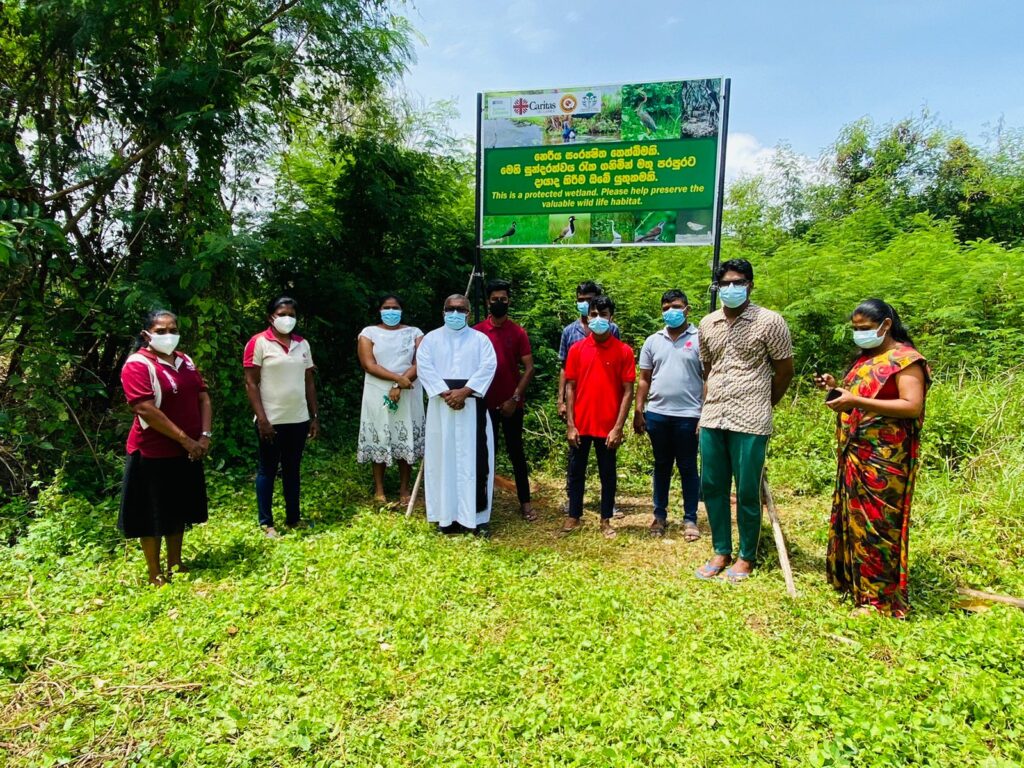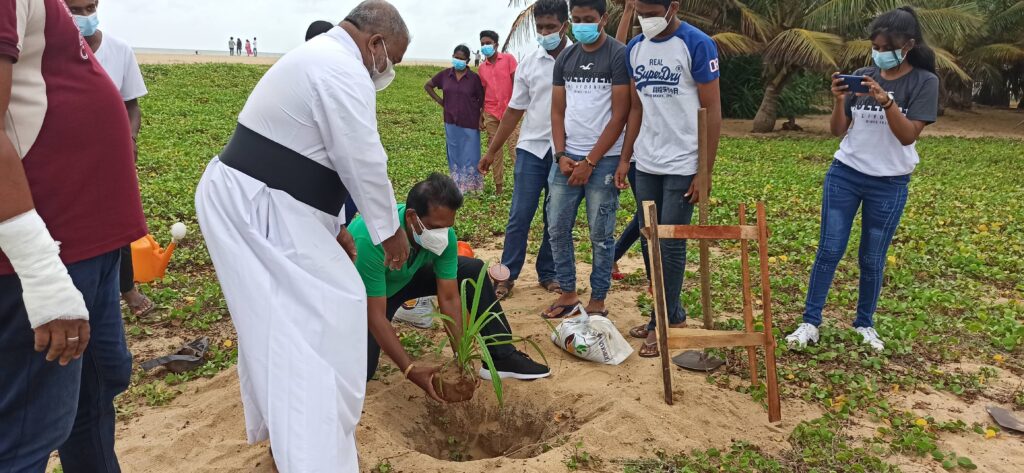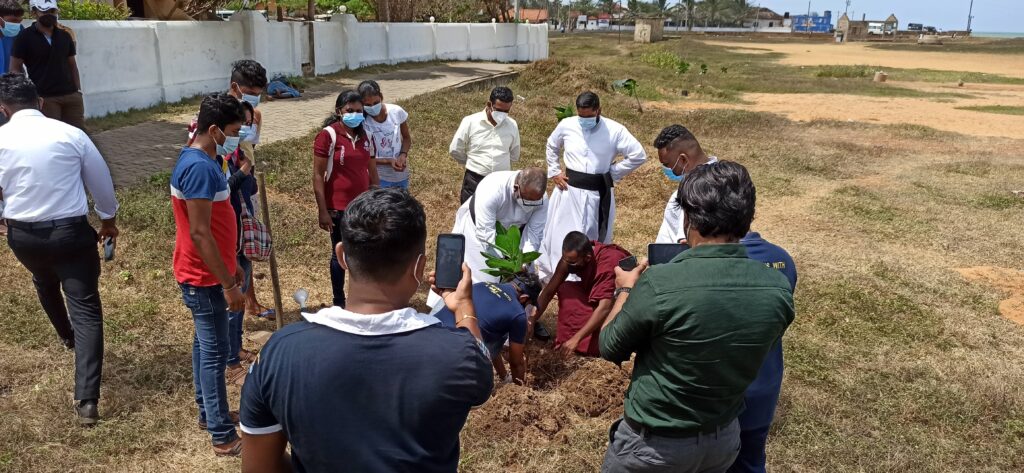There is a close relationship between the environment and the entire ecosystem of this land, this includes people. Mankind used to have a strong attachment to the environment in the past, but it is diminishing now.
People are a component of the environment but, they are not playing their part for the preservation of the environment. The preservation of the environment is essential for the steady existence of mankind. This concept is known as environmentalism. Our forefathers clearly understood that the people were dependent on the environment and had acted accordingly. But due to social transformation, the environment became an asset for people to use as they saw fit. It is because of this that we now see and experience environmental pollution at a global level.
The collapse of the connection with the eco-system is environmental pollution. It is due to people treating the environment and natural resources in a careless manner. At present, due to the activities of people, the chance for future generations to live in a secure and safe environment has been greatly diminished. Therefore, the responsibility to protect, maintain and the safety of the environment is in the hands of mankind.
Accordingly, the British Council along with Caritas Sri Lanka – SEDEC, attempted to find a solution to protect the environment along with the help of the youth. The Caritas Sri Lanka – SEDEC handed over the responsibility of this project to Caritas Chilaw Janasaviya SEDEC who reaped the fruitful results of this great initiative. The Puttalam District which has a long and colourful history, with one side bordering the ocean and an irrigation system which spreads across the district, nourishing the diverse agriculture. The Anavilundawa Birds Sanctuary and the Wilpattu National Park add an important part to protect the climatic balance of the district. In addition, there are a multitude of small forest reserves spread across the district.
A mixed community of three races and four religions live in this area. Thanks to this diversity, there are plenty of famous religious and cultural centers in the district. Chilaw is the center of the district and was once known as the City of Pearls. The Puttalam District is considered to be a district of great historic value, but it is currently experiencing neglect. To rectify the issue, the British Council and the Caritas Sri Lanka SEDEC took the initiative and successfully encouraged the youth to participate in revitalizing the area.
With the leadership of Caritas Sri Lanka and The British Council, certain areas in Chilaw which are prone to environmental conflicts are identified and given effective solutions. Training programs to empower and educate the youth in this regard were conducted as well. This program was held continuously for six days in two stages, with the attendance of sixty young people. The comprehensive training which focused on identifying environmental problems and how it affects human life as well as finding solutions to these issues, was conducted by five experienced individuals. Creating proposals to get the necessary financial, societal and other forms of support from the authorities and people from different levels in society was included in the training. To help implement this project, The British Council of Sri Lanka extended financial support to this project. As a result of this international level training program which was conducted for the youth, plans were meted out to protect six environmental systems.
After gathering the necessary information, the first group cleared the Japan Jabara which covered the lake of the much famed Munweswaram Temple, and the disposables were removed to make compost fertilizer, and the waste management system was also upgraded. In addition, a tree planting program was held along the sides of the bund of Munneswaram lake to give a new look to the nature which is the duty of the people.
The second group cleaned the Vaikkal beach under the theme ‘Protect The Beach for Tomorrow’ to make it attractive to tourists. Later, mangrove trees were planted along the beach to protect from sea erosion and wetakeiya (Pandamus kaida) plants were planted to minimise global temperature. The Waikkal youth installed waste bins to support the waste management system of the area. The people from the area supported this effort immensely as well. The third group took steps to protect the ‘ Gam Pimbura’ which is a small area affected by temporary constructions. During the reign of King Parakkrama Bahu a large tank’in the area was used as a naval base.
There were illicit constructions surrounding Marawila Walla and Marawila South which are under the Wahawewa Provincial Secretariat Division and Modara walla Grama Niladhari Division. The aim of the project is to safeguard the ecosystem which is rich in biodiversity. The Hundred-acre Lake is inhabited by different species of birds, fish, reptiles, amphibians, and mammals. For over half a century this lake was neglected and at present is unusable. The foundation was laid by planting mangroves to conserve this Gam Pimbura.
The second stage of the project themed Gamata Diyawara, aimed to provide water to a village through the renovation of the lake by removing Japanjabara which was hindering it. In addition, Kumbuk trees were planted close to the lake. To add to the succes, the people of the area and farmer associations also supported this. Their main aim is to increase the density of water level, arrange the system for their daily use as well as the development of agriculture and aquaculture. The training they got was immensely important for them carry out this successfully.
The fifth group focused their attention on the beach park in Chilaw. Though the beach attracts large numbers of foreign and local tourists, they don’t spend much time on the beach due to the heat. The people who frequent the area suggested that the area be rejuvenated. After a careful study, a program was launched to plant Moodilla plants to give shelter to the people who visit the beach.
It is grievous to note that the disposal of polythene and other non-degradable garbage is dumped carelessly, damaging the environment. The third group of the active peoples training program focused on this, especially since Chilaw beach attracts local and foreign tourists and is facing a great pollution problem. Initially, a beach clean-up project was initiated with the help of Beach Conservation. Creative placards were placed along the beach to educate the people and the renovation of garbage bins belonging to the Chilaw Municipal Council which were reinstalled at the beach.
#ENDS#
Image Caption- Stills from the initiative



